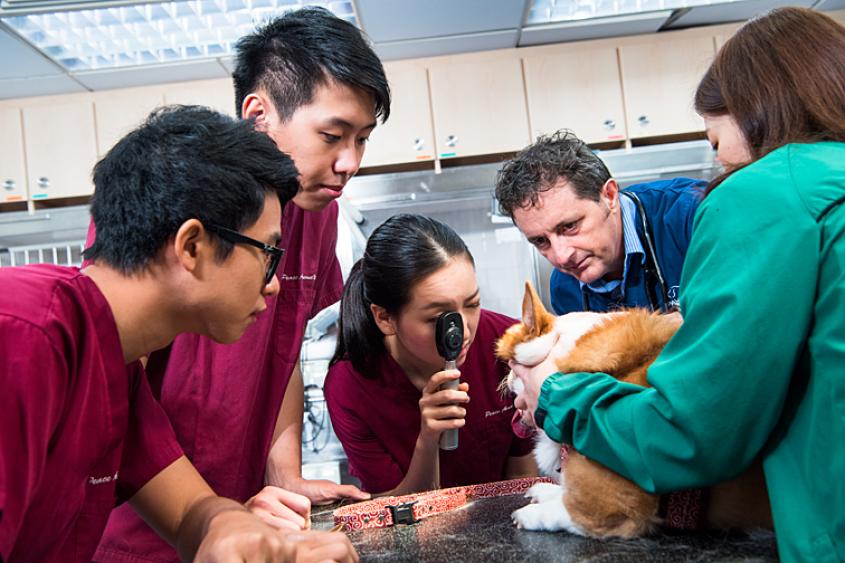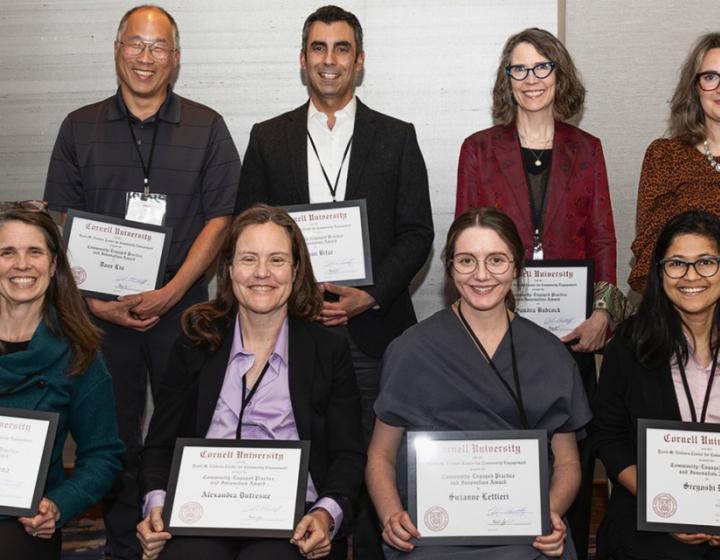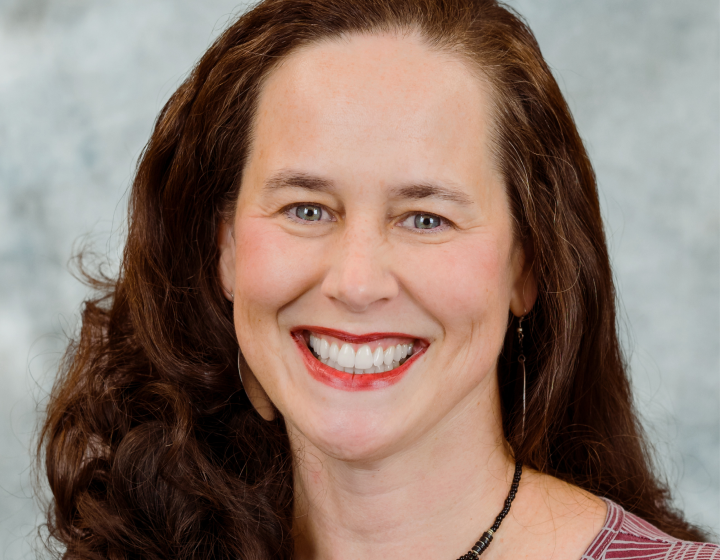An international accredited veterinary school for Hong Kong
Until now, Hong Kong has not had a veterinary school, and has been reliant on veterinarians who have qualified overseas for its veterinary services. At any one time, it is estimated that 200 locals are studying veterinary science overseas, with approximately two-thirds in Australia.
For the past decade, City University of Hong Kong and Cornell University’s College of Veterinary Medicine have collaborated on a project aimed at establishing a locally based veterinary college with the curriculum modeled on Cornell’s innovative, highly integrated delivery that focuses on problem-based learning.
The new Bachelor of Veterinary Medicine is a 6-year degree that fulfills the Cornell prerequisites, followed by a close copy of the core Cornell DVM foundation. There was also an opportunity to develop a number of courses to fulfill the team’s vision to be ‘the premier provider of comprehensive, evidence-based veterinary training, research and service in Asia, with particular emphasis on emerging infectious diseases, food safety, animal welfare and aquatic production. Even the early years of the degree are filled with courses on aquaculture, animal welfare, zoonoses, food safety and infectious diseases, which will hopefully instill a sense in students of alternatives to the more traditional career path that leads straight into (small animal) clinical practice.
To add international credibility and ongoing quality assurance, the program has been subjected to scrutiny by the Australasian Veterinary Boards Council (AVBC), in the same manner as veterinary schools in Australia and New Zealand. The AVBC’s accreditation body visited with the school in December of 2015 and 2016, and issued a ‘Letter of Reasonable Assurance’ in March 2017. One of the commendations from the accreditation visit was for the active and frequent provision of continued professional development events. The School has already provided more than 60 events and will continue to provide these locally and also regionally to help to upskill veterinarians in the region, particularly those from mainland China. And anybody from Australia is welcome to join us as well.
Early indications are that the School is on the right track and is expected to take in its first cohort of 10–15 students in September this year. In the meantime, facilities continue to be built or acquired – to this end the School has acquired the largest veterinary practice in town, Peace Avenue Veterinary Clinic, with approximately 30 veterinary practitioners including 10 specialists and has leased land in the new territories for an aquaculture research facility.
The Veterinary School is actively searching for land in Hong Kong to establish a dairy farm, which is a major expense. The team is also recruiting local primary producers to provide farming experiences for students to complement their clinical education and has a strong relationship with the local Hong Kong Jockey Club for equine placements, internships and clinical education.
Finally, the Veterinary School has set up a major veterinary diagnostic laboratory, catering to the specific needs of local and regional practitioners.
The School continues on its growth path with an active recruitment schedule for faculty staff, with a further four members joining it in the second half of this year. PhD students in a jointly-supervised program with Cornell have embarked on their placement in Ithaca, upstate New York, and the School has been enlarged by the incorporation of the Department of Biomedical Sciences. It is now the College of Veterinary Medicine and Life Sciences.
Professor Michael P Reichel
Dean, College of Veterinary Medicine and Life Sciences,
Hong Kong
This article appeared in the September 2017 issue of the Australian Veterinary Journal





